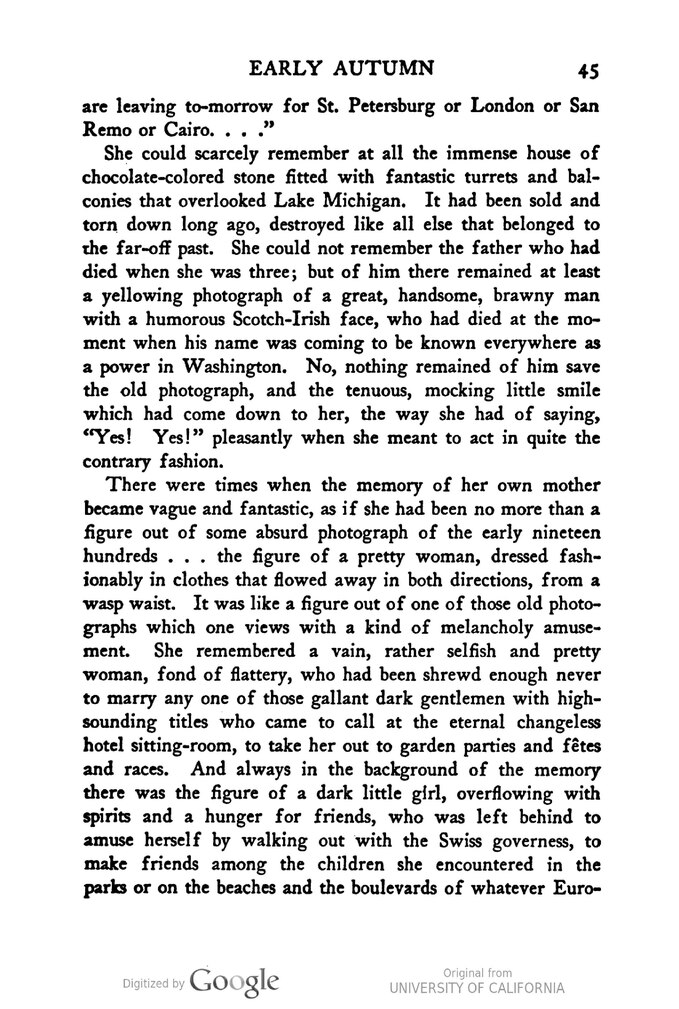are leaving to-morrow for St. Petersburg or London or San Remo or Cairo. . . ."
She could scarcely remember at all the immense house of chocolate-colored stone fitted with fantastic turrets and balconies that overlooked Lake Michigan. It had been sold and torn down long ago, destroyed like all else that belonged to the far-off past. She could not remember the father who had died when she was three; but of him there remained at least a yellowing photograph of a great, handsome, brawny man with a humorous Scotch-Irish face, who had died at the moment when his name was coming to be known everywhere as a power in Washington. No, nothing remained of him save the old photograph, and the tenuous, mocking little smile which had come down to her, the way she had of saying, "Yes! Yes!" pleasantly when she meant to act in quite the contrary fashion.
There were times when the memory of her own mother became vague and fantastic, as if she had been no more than a figure out of some absurd photograph of the early nineteen hundreds . . . the figure of a pretty woman, dressed fashionably in clothes that flowed away in both directions, from a wasp waist. It was like a figure out of one of those old photographs which one views with a kind of melancholy amusement. She remembered a vain, rather selfish and pretty woman, fond of flattery, who had been shrewd enough never to marry any one of those gallant dark gentlemen with high-sounding titles who came to call at the eternal changeless hotel sitting-room, to take her out to garden parties and fêtes and races. And always in the background of the memory there was the figure of a dark little girl, overflowing with spirits and a hunger for friends, who was left behind to amuse herself by walking out with the Swiss governess, to make friends among the children she encountered in the parks or on the beaches and the boulevards of whatever Euro-
